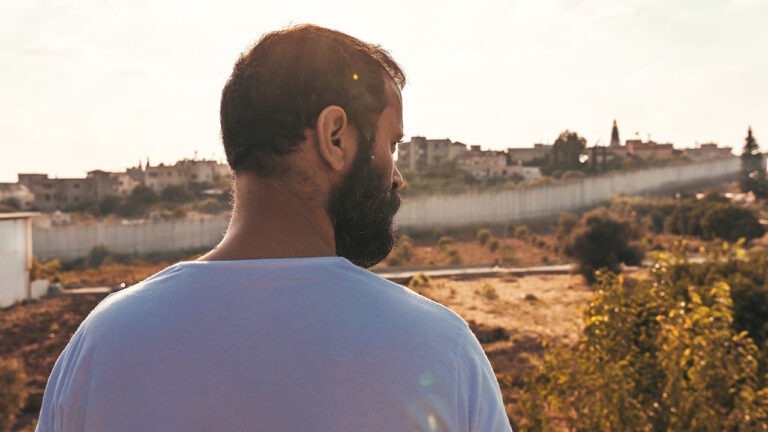
Okayama—Mon, 1/13 @15:30 (max 25 ppl). Japan Premiere!
Written and Directed by: AMEEN NAYFEH, starring Ali Suliman.
Palestine, Jordan, Qatar, Italy, Sweden | 2020 | 96 min | In Arabic with English subtitles and Japanese SDH subtitles | Ticket: 1200 yen
Separated from his injured son by Israel’s apartheid wall, a Palestinian father undertakes a perilous 200-kilometer journey to cross a distance of just 200 meters, exposing the brutal absurdity of occupation.
Director Ameen Nayfeh is from the West Bank and 200 Meters is his feature debut.
The acting by Alu Suliman (Paradise Now) is superb. This film is an absolute gem but probably because it was released during the Covid, it did not get the attention it deserves. It is a beautiful film. We screened it at Hunter College in NYC in Nov 2024 and the audience’s reaction was enormous. Many talked about it for days.
Ameen Nayfeh
Ameen Nayfeh (born in Palestine, 1988) spent his formative years moving between Jordan and Palestine. Despite an early interest in filmmaking, in 2010 he earned his B.Sc. in Nursing from Al-Quds University in East Jerusalem. Two years later, he earned an MFA in film producing from the Red Sea Institute of Cinematic Arts in Jordan. Ameen Nayfeh’s previous films include The Crossing (2017, Short), Suspended Time / Zaman Muaalaq (2014, documentary segment), The Eid Gift (2012, Documentary), The Uppercut (2012, Documentary). 200 METERS is his first feature film.
[ DIRECTOR’S STATEMENT ]
I carry lots of memories that I no longer have access to, or it could be that I fear to dwell back into it. Oppression does alienate you as it denies you your basic rights; especially when you start adapting to it!
A forced separation aches a lot. 200 METERS is my story and the story of thousands of
Palestinians, and stories can definitely alter lives. I believe in the power of the cinema and how it touches our lives and magical ways. I need to tell this story.
Images of the wall, checkpoints and soldiers are probably what come to mind when Palestine is mentioned. Although these images are also in this film, the focus will be on what such a separation does to us as human beings. And to shed more light on the invisible barriers and walls that are created as a result to the physical barrier.
Here, in Palestine we got used to adapt to new situations, to do as we’re told and camouflage our feelings. But this should no longer be acceptable. Freedom of movement is a very basic human right that seems to be a fairytale in such a brutal reality. The main character Mustafa has obeyed the rules, endured the humiliation and did as told in order to secure a small chance to be with his family, but when the same rules that alienated his life put his family and fatherhood on stake, will he obey it any longer?
(from a press release of the film)
